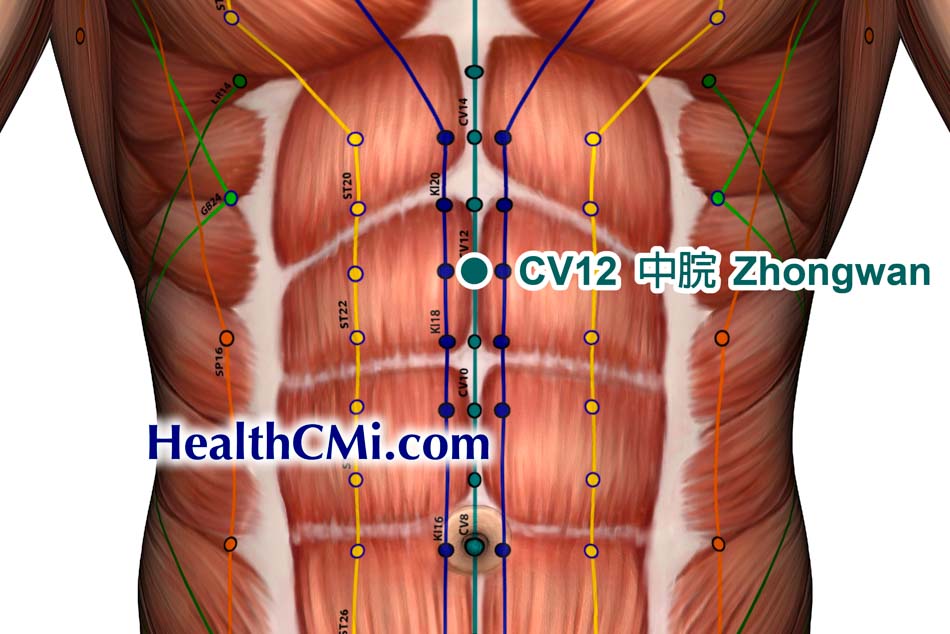Warm needle acupuncture has been demonstrated to have significant clinical efficacy in treating chronic superficial gastritis (CSG) with spleen-stomach deficiency cold syndrome. Researchers from the Hunan Provincial Hospital of Integrated Traditional Chinese and Western Medicine recently conducted a study comparing warm needle acupuncture treatment to oral Wenweishu capsules for CSG. Chronic superficial gastritis (CSG) is a condition characterized by ongoing inflammation of the outer layer of the stomach lining. This persistent inflammation can increase the risk of developing stomach ulcers and a type of cancer known as mucosa-associated lymphoid tissue (MALT) lymphoma. The results indicated that warm needle acupuncture could more effectively improve patients’ gastrointestinal function and overall quality of life. [1]
The study involved 60 patients diagnosed with CSG with spleen-stomach deficiency cold syndrome, who were treated at the outpatient and inpatient departments of the Hunan Provincial Hospital of Integrated Traditional Chinese and Western Medicine between January 1, 2022, and December 31, 2022. The participants were randomly assigned to either a warm needle acupuncture treatment group or a Wenweishu capsule control group, with 30 patients in each group. There were no statistically significant differences between the two groups in terms of gender, age, or disease duration.
In the treatment group, 11 patients were male and 19 were female, with ages ranging from 21 to 63 years (average age: 39.87 ± 10.95 years). The duration of the disease ranged from 5 to 64 months, with an average duration of 37.10 ± 14.07 months. In the control group, 14 patients were male and 16 were female, with ages ranging from 20 to 64 years (average age: 41.03 ± 11.18 years). The duration of the disease in this group ranged from 6 to 63 months, with an average duration of 37.43 ± 13.67 months.
The study’s observation indicators included a symptom scoring system, assessing symptoms such as gastric bloating or dull pain, fatigue, loose stools, and reduced appetite, with scores ranging from 0 (none) to 3 (severe). Gastric mucosal inflammation, observed via gastroscopy, was compared before and after treatment. The levels of gastrin (GAS) and motilin (MTL) were also recorded and compared. The treatment group had a total efficacy rate of 90.00% (27/30) for TCM syndromes, significantly higher than the control group’s 83.33% (25/30). The efficacy rate observed via gastroscopy was 90.00% (27/30) in the treatment group and 86.67% (26/30) in the control group. Both groups showed a reduction in TCM syndrome scores and an increase in GAS and MTL levels, with the treatment group performing significantly better than the control group in these indicators.
The inclusion criteria for this study were patients with clinical manifestations related to eating, such as upper abdominal pain, postprandial fullness, nausea, acid reflux, and dyspepsia, possibly accompanied by mild tenderness in the upper left abdomen. Gastroscopy findings included mucosal erythema, hemorrhagic spots or patches, rough mucosa, edema, and congestion. According to TCM syndrome differentiation standards, patients exhibited gastric distension or dull pain, a preference for warmth and pressure on the stomach, loose stools, fatigue, reduced appetite, shortness of breath, reluctance to speak, vomiting clear fluids, pale tongue, and weak pulse. Patients with secondary chronic gastritis, chronic atrophic gastritis, special types of gastritis, severe cardiovascular diseases, liver or kidney dysfunction, coagulation disorders, severe systemic skin diseases, or infectious diseases were excluded from the study.
Both groups received continuous treatment for 30 days and were advised to avoid smoking, alcohol, cold, spicy, irritating foods, and certain food allergens during the treatment period. The control group was treated with oral Wenweishu capsules (Hefei Shenlu Shuanghe Pharmaceutical Co., Ltd., Z34020288, specification: 0.4 g per capsule), taking 3 capsules per dose, 2 times per day. The exact composition of Wenweishu capsules vary depending on the manufacturer, but they generally include a combination of herbs that have warming, tonifying, and digestive-aiding properties. Common ingredients include ginger, cinnamon bark, and other warming herbs that support digestive function and promote the flow of Qi (vital energy) in the digestive tract. Patients in the warm acupuncture group first assumed a supine position, and the selected acupoints were:
• CV12 (Zhongwan)
• CV6 (Qihai)
• PC6 (Neiguan)
• ST36 (Zusanli)
• SP4 (Gongsun)
• SP6 (Sanyinjiao)
The needle size was 0.35 mm × (40–50) mm. After achieving deqi, the needles were manipulated using a reinforcing technique, and two segments of moxa sticks, about 2 cm long each, were placed on the needle handles. After burning out, the patients switched to a prone position, and the same procedure was repeated at the BL20 (Pishu) and BL21 (Weishu) acupoints.
In conclusion, this study underscores the superior clinical efficacy of warm needle acupuncture in treating chronic superficial gastritis (CSG) with spleen-stomach deficiency cold syndrome compared to traditional Wenweishu capsules. Warm needle acupuncture significantly improved gastrointestinal function and overall quality of life, positioning it as a more effective treatment option for patients with this condition. However, both treatments achieved notable clinical results. A future study comparing the combined therapy of herbal medicine and acupuncture is warranted. These findings highlight the importance of integrating traditional Chinese medicine practices, such as warm needle acupuncture and herbal medicine, into therapeutic strategies for managing CSG.
Source: [1] Wang Zhiming, Tan Rong, “Treating 30 Cases of Chronic Superficial Gastritis with Warm Acupuncture,” Hunan Journal of Traditional Chinese Medicine, Vol 40, No. 6, June 2024.


